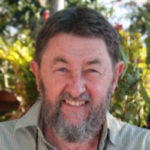MUNGO MacCALLUM. China, The US and the Manus Island naval base.
Nov 19, 2018APEC, Asia-Pacific Economic Co-operation, was really Bob Hawke’s idea. The Prime Minister of the day envisaged it as a purely economic gathering, a meeting of finance ministers to deal with the growing impact of globalism and ensure dialogue and the rule of law between its diverse participants.
But then Paul Keating,, worried about what he saw as a rift between China and Japan, refashioned it as a true regional summit, where political leaders could hold regular meetings to thrash out their problems and differences.
He gained considerable support from the newly elected US president Bill Clinton, but on the proviso that it remained primarily an economic forum, so the name APEC was retained although it morphed into much wider strategic considerations. And as a result not only did the Economic bit take second place but the Co-operation bit became less important as well, leading to direct confrontation in last week’s APEC in Port Moresby.
The decision of the US and Australia to combine forces in a joint naval base on Manus Island (at the invitation of Papua-New Guinea of course – of course) was a direct challenge to the Chinese expansionism in the region and the US Vice President Mike Pence, deputizing for the chief confronter, made no attempt to disguise its purpose. And by insisting on Washington’s participation in what had been seen as a purely Australian initiative, Pence has locked Australia into America’s side in the great game.
Scott Morrison is still trying desperately (does he try any other way?) to play both ends against the middle, to somehow balance the strategic imperative of the American alliance with the essential reality of our trade with China. This was perhaps his motive in making his key speech about the need to avoid protectionism and embrace free trade.
It was taken as an implicit rebuke to Donald Trump’s policies towards China. But it is unlikely to cut much ice with Beijing. Actions speak louder than words, and a gentle chiding from a neophyte prime minister to a belligerent and unheeding president hardly weighs against the establishment of a permanent military facility on what China regards as its doorstep.
There will be other opportunities; if Morrison is serious he will have to take on Trump in person at the G20 summit in Argentina. A major shirt-fronting may restore the delicate relationship but at the moment it appears that Morrison has finally made his decision.
Numerous former Australian leaders have wrestled with the dilemma, which used to be called the choice between our history and our geography; the usual solution was the claim that we could have both, and in the past we have generally gotten away with it. But as the rivalry between the US and the PRC has intensified over the nationalist ambitions of both leaders, the need to take sides cannot be avoided.
And with the Manus declaration, there is no doubt which way Australia has jumped. Morrison probably does not even realize its significance; he may think it is just another of his marketing coups. But this week the neighbourhood, and perhaps even the world, is a different place. Keating wanted APEC to matter, and it has – although not necessarily in the way he wanted.




